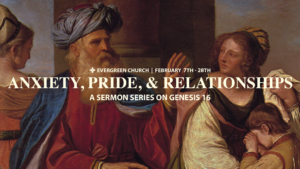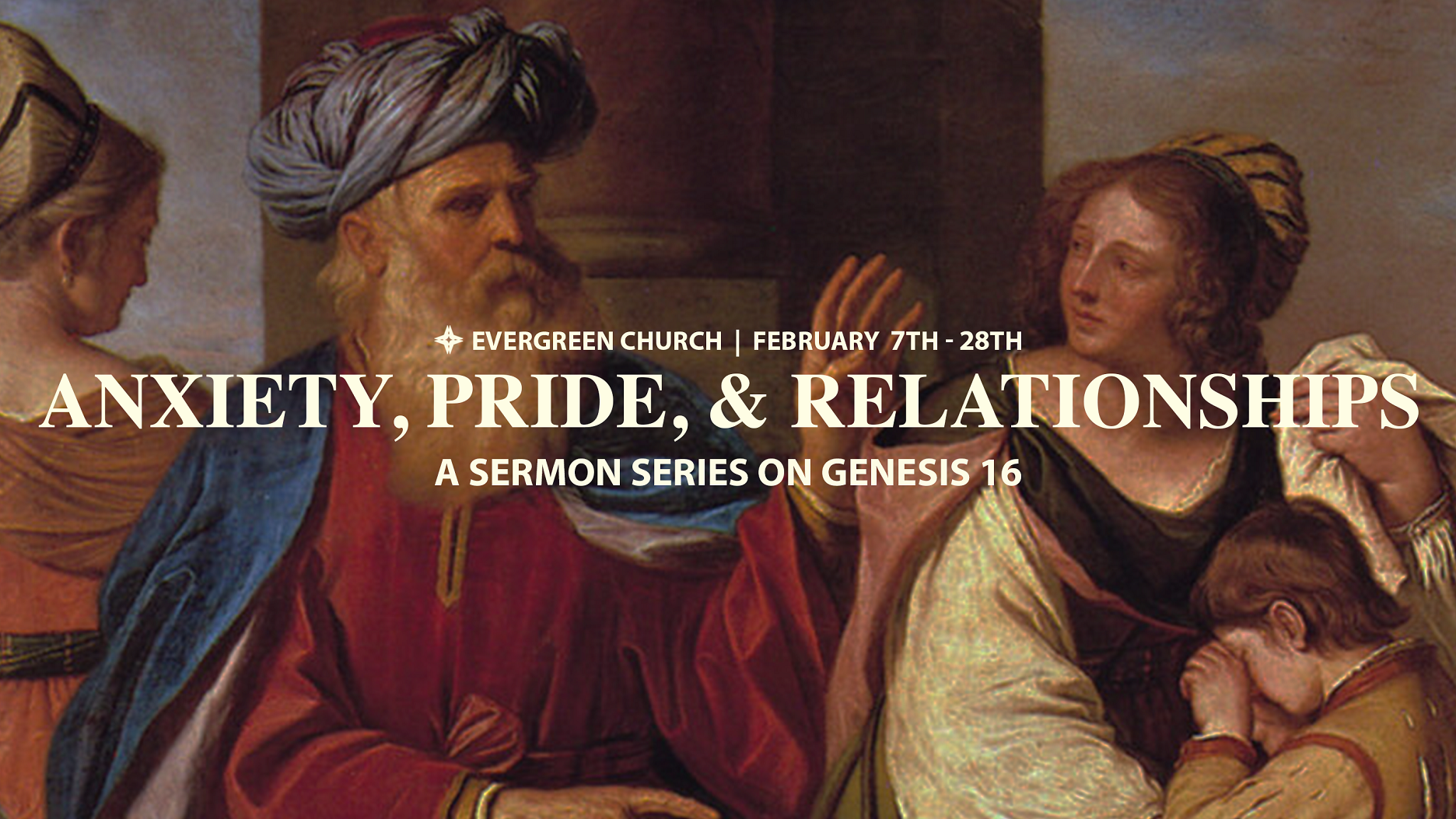[Listen to an audio version here]
 Where does injustice come from? Humans can treat each other with astonishing cruelty, far outstripping even the most vicious animals. How does it come about that humans behave so unjustly?
Where does injustice come from? Humans can treat each other with astonishing cruelty, far outstripping even the most vicious animals. How does it come about that humans behave so unjustly?
When we see injustice, it’s easy to simply look at its perpetrators as evil. Now, don’t get me wrong. Injustice is evil. We should condemn it. However, we also need to seek to understand it.
Injustice is born not only out of pride but also anxiety. We worry about our position, our prestige, or our provision. We make ourselves bigger and claim more for ourselves than is due in order to maintain it.
It’s easier to see how this occurs on a large scale. Why did the United States invade two nations in the early 21st century? Was it not driven out of anxiety over terrorism? Now, you can debate whether those wars were just or not, but the point is that this action took place in the context of anxiety.
Why is China so concerned about a few rocks in the South China Sea? Is it not at least partly anxiety over their position and prestige? People can be just as anxious about maintaining their prestige as they are about maintaining their provision.
In the United States, why did slavery exist? It was anxiety over being able to maintain a particular way of life. The owners became dependent on it in order to maintain their prestige as a sort of American nobility. They feared letting it go because they feared losing that prestige, prosperity, and position. Booker T. Washington wisely noted, “Having once got its tentacles fastened on to the economic and social life of the Republic, it was no easy matter for the country to relieve itself of the institution.”
If you view injustice from this lens, it makes a lot more sense of what we see in the world. Injustice is worthy of condemnation but also of some compassion in light of the challenging position nations and individuals find themselves in.
Now, I want to try to consider how this manifests itself in daily life through this text, Genesis 16. Remember, the Bible reveals the solution to sin but in order to enable us to understand that solution, it also helps us understand sin itself. It does this so that we can repent and find healing, grace, and forgiveness through Jesus Christ.
So, let’s consider what this passage teaches us about sin from the life of Hagar, Sarah, and Abraham.
Hagar
We have already explained Hagar’s anxiety and pride. Hagar’s anxiety was that she would not be seen, that she was insignificant. Once she was “seen,” she immediately took this blessing and made it bigger than it was. “When she knew she was pregnant, she began to despise her mistress” (Gen. 16:4b). That is a perfect example of pride. We take something that we have that is good, make it more important or valuable than it is, and use it to exalt ourselves above others.
If you ask people how much something is worth, they will give you one answer. If they own the very same thing, and you ask them how much it is worth, then they will say it is worth much more. We tend to value everything more highly if it is “ours.”
And what does this lead Hagar to do? What she gives to herself, she takes away from Sarah. She fails to give her the respect and honor that is due her. Instead, she looks down on her with contempt.
The most basic justice we owe each other is respect. When our anxiety goes up and our pride goes up, respect often gets thrown out the window. That’s why Peter says, “Show proper respect to everyone” (1 Pet. 2:17a). Even when we are telling people why we believe in Christ, we must do this with “gentleness and respect.” Peter says.
How do we show respect to people we struggle with? One, we can honor their basic humanity. Two, if they are believers, we can honor their faith. Three, we can relate to them with curiosity rather than a conclusion. Be quick to listen, slow to speak, and slow to wrath. Those are the virtues of honor and respect.
Patterson, Grenny, Macmillan, and Switzler in their excellent book Crucial Conversations, note that in order for productive conversations to take place, you need two things: safety and respect. This is basically “gentleness and respect.” These authors note that when safety and respect break down, the ability to have a productive conversation breaks down. And that’s exactly what happens here.
Sarah
Remember that Sarah is already anxious in this passage. She is understandably anxious about not having borne a child for Abraham. To relieve her anxiety, she chooses a common but unjust relief for that anxiety: giving her slave to her husband to have a child through her.
There is no doubt, though, that when Hagar became pregnant, she became very anxious about the situation. When Sarah’s anxiety up, Hagar’s respect also broke down. The result was that Sarah’s anxiety went way up, and she relieved her anxiety in a common from: attack.
Listen very carefully to what she says, “Then Sarai said to Abram, ‘You are responsible for the wrong I am suffering. I put my slave in your arms, and now that she knows she is pregnant, she despises me. May the Lord judge between you and me'” (Gen. 16:5). “You are responsible for the wrong I am suffering” (Gen. 16:5).
Was Sarah right? In one sense, yes. Abraham was responsible. He had not taken leadership when he should have.
On the other hand, this clearly omitted a key point, namely, that she originated the idea and strongly urged it upon her husband. So, there’s something very important here. When things go wrong, our tendency is to blame others. This began with our first parents. Adam blamed Eve. Eve blamed the serpent. Both attempts to blame had some justice but omitted their own part in it.
This is the dissolution that takes place when we employ the pride solution to our anxiety. It leads to recrimination. It separates people and arms them for war, as it were.
But there is something else here. It’s so hard for us to deal with the abstract problems of life like loneliness, insecurity, and meaninglessness, that we try to make it concrete by blaming others for it. Think of Sarah’s issues. They are big, and to some degree, unsolvable. It makes it a lot easier to blame Abraham.
And let me tell you that there is nothing more common than this in life. We feel the anxiety of life, but it’s hard to articulate that life is just hard. So, we bring it down to our level by blaming Democrats or Republicans or Donald Trump or immigrants or China or whomever. In our daily lives, we blame our parents, our spouses, our children, our neighbors, our friends, our town, our church, our pastor, our congregation, or anyone else.
I know the power of this from my own experience. I admit that when things go wrong, I will blame my wife, even if she had nothing to do with it. I know I do this. I’ve worked hard not to do this, but it’s astonishing how readily my mind goes there when my anxiety goes up. I even know it’s a lie. There’s a part of me that wants to believe it. It’s powerful because it relieves the anxiety. Our whole body starts working towards it because it naturally tends to move us toward that which makes us feel better.
Allow me to extend this out a little bit further through a common example. Loneliness is an existential problem. It is basic to existence. However, in our society, loneliness is a bigger problem than usual because of the breakdown of so many common forms of interaction, including just walking places.
Now, what happens when our anxiety goes up, and we begin to feel like we are lonely? We tend to blame our family, our community, or our church. “These people,” we say, “are just not friendly.” Take note. That might be true to a degree. It’s not always easy to break into a community.
But let’s also notice something else. Loneliness is not a problem people can really solve for us. It’s an existential problem. It’s a problem that is not wholly in any community. The community may be at fault to a degree, but we rarely ask the question, how hard have I worked to build relationships? Relationships take work! That is a more accurate view of the matter, but when anxiety goes up, all that goes out the window. We respond in pride and injustice like Sarah did, blaming others.
Abraham
By now, we have a strong sense of what Abraham is going to do. He is going to avoid the problem and distance from it. He is going to be passive where he should have been active.
How does he respond? “‘Your slave is in your hands,’ Abram said. ‘Do with her whatever you think best.’ Then Sarai mistreated Hagar; so she fled from her” (Gen. 16:6).
Abraham refused to take leadership and allowed Sarah to vent her anxiety and frustration on Hagar. It was wrong for him to sleep with her, but it was also wrong to allow her to be mistreated.
Standing up for just treatment of others is not always easy. Treating others unjustly may relieve the anxiety of a powerful person in our life. When that happens, it will cost us something to stand for justice. So, we need what Abraham lacked, courage. However, Abraham had developed a pattern of dealing with anxiety by avoiding the problem. When the family got tense, it was all too easy to acquiesce in injustice.
The result was not only that Hagar fled. You will also notice that Abraham and Sarah’s choices would affect the generations. When God tells Hagar that she will have a child, here is what He says about this child, “He will be a wild donkey of a man; his hand will be against everyone and everyone’s hand against him, and he will live in hostility toward all his brothers” (Gen. 16:12). The pride and anxiety in this family will reverberate through the generations.
Conclusion
That’s a pretty bleak picture, but it’s not the end of the chapter. Even though we have looked at length at the problem of sin in this chapter, this is not primarily what the chapter is about. What happens to turn back the disruption and dissolution of this chapter? God shows up.
In the fist half of the chapter, God is nowhere to be seen. It’s all about the humans and what they do. It’s almost as if God doesn’t exist. Then, at the lowest point, when everything is falling apart, God shows up. We’ll consider that in more detail next week.
For now, note that this is our great hope. God shows up. The Son of God comes in human form and becomes a part of the human family to heal the human family and all our individual families. Pride, anxiety, and injustice don’t have to be the last word. God’s grace gets the final word. God sees us, and when we see the God who sees us above our problems, that makes all the difference. Amen.




 Where does injustice come from? Humans can treat each other with astonishing cruelty, far outstripping even the most vicious animals. How does it come about that humans behave so unjustly?
Where does injustice come from? Humans can treat each other with astonishing cruelty, far outstripping even the most vicious animals. How does it come about that humans behave so unjustly?

